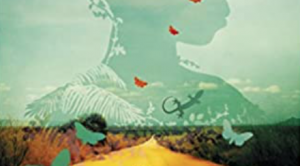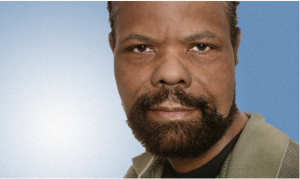 Prof Nigel Thomas (Laval University) kindly provided a most engaging reader’s response re The Afrikaner:
Prof Nigel Thomas (Laval University) kindly provided a most engaging reader’s response re The Afrikaner:
“Hello Arianna. I promised you when I bought your book at Paragraphe Bookstore in Montréal to give you my opinion of it. It certainly held my interest, and in that respect it works as any good work of art ought to. Keep the reader wanting to turn the page has been with us from The Arabian Nights to Margaret Atwood. I saw however that you were struggling to deal with the aftermath of apartheid. If you had succeeded in fusing the family curse with the curse of apartheid, the novel might have been more satisfying. I found Kurt to be the most interesting, most authentic character. His life alone would have made for an interesting novel. He carries within him the curse of apartheid as well as its wounds.
Just before reading The Afrikaner, I read a different South African novel by Kagiso Lesego Molope, a much different novel from yours, a novel that is firmly rooted culturally, although that culture works to the detriment of the two main characters. It does, however, helps to unify the novel. The closest you come to this is with the rituals in the Kalahari. I guess the challenge for post-apartheid writers is how to present post-apartheid reality. Maybe it’s too soon to try. None of what I’ve written here is to imply that your novel isn’t good but rather to let you know that I understand how challenging it is to transmute post-apartheid reality into fiction.” (Nigel Thomas, Laval University).
I have also provided my writer’s answer to Nigel’s comments:
“Dear Nigel, thank you so much for your thoughtful feedback and for your kind words of appreciation. You are right, I think it’s extremely challenging to try to address the complexities of post-apartheid South Africa. For this reason, in my novel I only deal with that very brief moment of South African society caught in a major transition, where everything is extremely fluid and all people are lost trying to find their place (& cultural/identity anchor) in a fast-changing reality. And yes, I agree with you; Kurt is the most interesting character, freely inspired by the life of well renowned South African writer and anti-apartheid activist Breyten Breytenbach. Even more challenging for me was the fact that I am not South African (I am Italian and was in South Africa between 1996 and 2000 working as an international reporter for the Italian press). Through all the many interviews I had with South African people across its multifarious social, racial and ethnic spectrum, I tried to get a glimpse of that complex reality and incorporated the lessons I learned into my fiction. So, you see, Zoe’s story is just one among the many stories that wanted to be told for the pure sake of honest, engaged – and hopefully engaging – storytelling. Your feedback means a lot to me, thanks for having provided it.” (Arianna Dagnino).
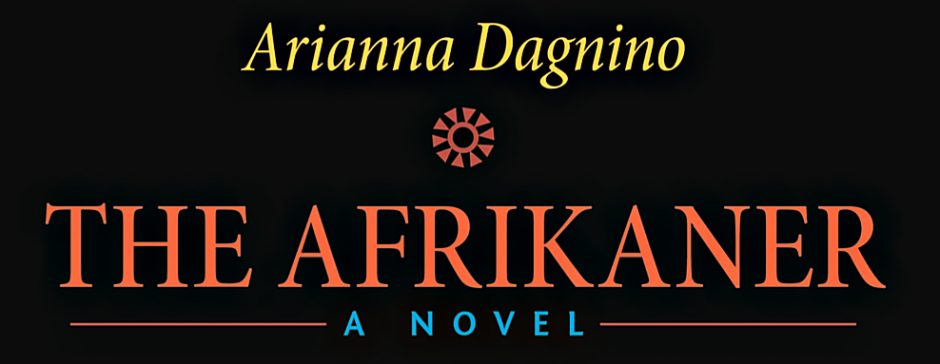
 https://blogs.ubc.ca/afrikaner/follow
https://blogs.ubc.ca/afrikaner/follow 

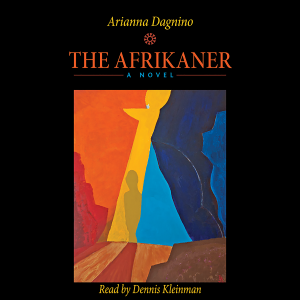 I am very pleased to present
I am very pleased to present 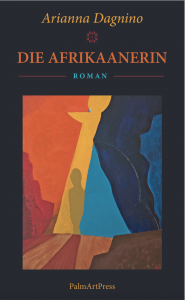 The German translation of The Afrikaner is finally out with the title
The German translation of The Afrikaner is finally out with the title 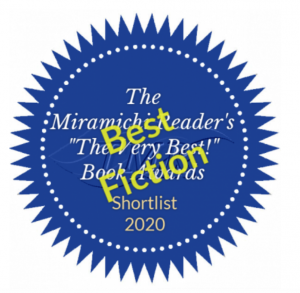 Arianna Dagnino’s THE AFRIKANER shortlisted for ‘BEST BOOK’ by Miramichi Reader. “Best Fiction” is the most popular category at The Miramichi Reader. Here are the seven “Best Fiction” titles of 2020:
Arianna Dagnino’s THE AFRIKANER shortlisted for ‘BEST BOOK’ by Miramichi Reader. “Best Fiction” is the most popular category at The Miramichi Reader. Here are the seven “Best Fiction” titles of 2020: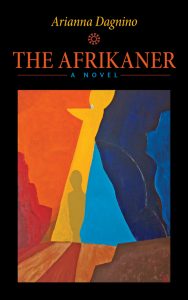
 Soon I realized how much the old San Bushman shaman could “tell me” with his simple gestures and facial expressions. In this passage (beginning of
Soon I realized how much the old San Bushman shaman could “tell me” with his simple gestures and facial expressions. In this passage (beginning of 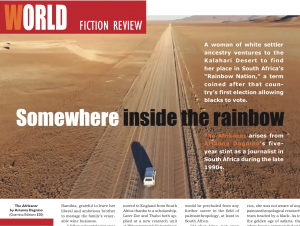 Alan Twigg’s review of my novel
Alan Twigg’s review of my novel 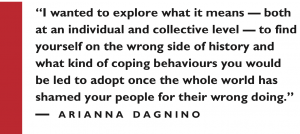
 of her Afrikaner heritage. Set between South Africa and the Kalahari Desert in Namibia, the story of palaeontologist Zoe du Plessis, the Afrikaner of the book title, has the ability to cross borders and resonate with the hearts and souls of readers far away from the hot plains of southern Africa. Because all people have a history and all nations have bloodlines. They all get shaken up and suffer trauma. But they all learn to cope with the past, learn from it and find a resolution. This is the underlying message running through The Afrikaner, which after its English publication will soon be available in German, Arabic, Italian and Afrikaans. Covid-19 permitting, the German translation will be launched at the 2020 edition of the Frankfurt Book Fair in October.
of her Afrikaner heritage. Set between South Africa and the Kalahari Desert in Namibia, the story of palaeontologist Zoe du Plessis, the Afrikaner of the book title, has the ability to cross borders and resonate with the hearts and souls of readers far away from the hot plains of southern Africa. Because all people have a history and all nations have bloodlines. They all get shaken up and suffer trauma. But they all learn to cope with the past, learn from it and find a resolution. This is the underlying message running through The Afrikaner, which after its English publication will soon be available in German, Arabic, Italian and Afrikaans. Covid-19 permitting, the German translation will be launched at the 2020 edition of the Frankfurt Book Fair in October.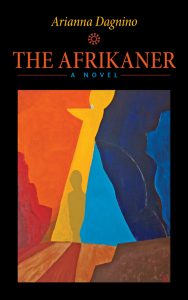
 Listen to an
Listen to an 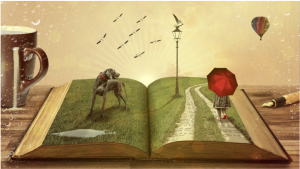 I thank the South African writer
I thank the South African writer 